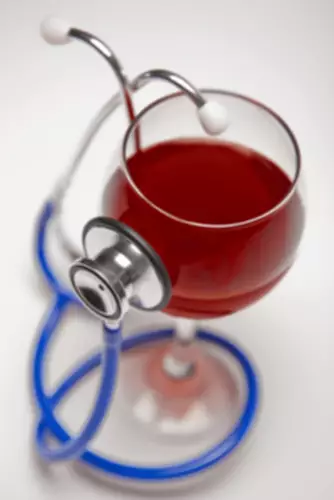Blood Thinners: Benefits, Risks, and How to Use Them
October 11, 2022 3:50 am Leave your thoughts
If you’re a heavy drinker, begin tapering off as soon as the option of surgery is on the table. If you lost a lot of blood during surgery, you may require a blood transfusion. Alcohol consumption increases the risks of postoperative complications, admission to intensive care units, and death. The brain also becomes more sensitive to the effects of alcohol as people get older, Moore says. “This can make people more prone to developing problems with coordination or balance,” increasing their risk of falls.

Drinking Alcohol While Taking Blood Thinners
The review authors highlighted that previous research has suggested drinking significant amounts of alcohol every day has links to a higher risk of developing high blood pressure. They also discussed studies that indicated higher levels of alcohol consumption have associations with an increased risk of stroke, atrial fibrillation, and heart failure. These interactive effects could cause medications to become less or more effective.
- As females retain more alcohol in the bloodstream than males, they are at higher risk of developing problems from combining alcohol with medications.
- Medications that pose the most risk during surgery are those that increase the chance of bleeding and interfere with anesthesia medications.
- This may lower your risk for the type of strokes caused by blockages in blood vessels.
- The quick answer to this question is yes, alcohol does act as a blood thinner.
- Alcohol use increases the incidence of postoperative bleeding.
- Even though you are not eating, you may be able to take your routine morning medications with a small sip of water.
Can alcohol cause blood clots?
Even if you have a normally functioning liver and kidneys, alcohol can limit your liver’s ability to metabolize other compounds. With an antiplatelet medication in circulation, the broadcast of the signal is both delayed and the “volume” is turned down, so fewer platelets respond. Receive free access to exclusive content, blood thinners and alcohol side effects a personalized homepage based on your interests, and a weekly newsletter with the topics of your choice. Receive free access to exclusive content, a personalized homepage based on your interests, and a weekly newsletter with topics of your choice. Discussions about alcohol use will be kept confidential with your doctor.

Moderate Alcohol Use and Reduced Heart Disease Risk
- Traumatic injuries are one of the most common causes of bleeding, but sometimes you can bleed spontaneously.
- You could possibly bleed more during surgery if you were to drink 24 hours before.
- Exceeding the recommended guidelines above is considered heavy drinking.
- This information is published to educate you about preparing for your surgical procedures.
- People should also avoid using alcohol in combination with opioids, which doctors often prescribe after surgery.
For men under age 65, up to two drinks a day is considered moderate. People taking blood thinners with reduced liver function may accumulate more medication in their bloodstream. https://ecosoberhouse.com/article/alcohol-neuropathy-symptoms-and-treatment/ Increasing the level of blood thinners in the body can lead to an increased risk of bleeding. The effects of alcohol consumption on the blood are either short-term or long-term.
What to do — and avoid — before anesthesia
- A 2018 systematic review and meta-analysis concluded that there’s a significant increase in alcohol use disorder 2 years after gastric bypass surgery.
- Alcohol can also affect the action of platelets, which are the components of the blood that form clots.
- Alcohol can thin your blood by preventing blood from clotting.
- Some foods and medicines can change the way your blood thinners work, especially if you take warfarin.
- Experts suggest moderate alcohol consumption is generally safe while taking blood thinners.
- A doctor may prescribe these medications to reduce a person’s risk of heart attack and stroke.
Doctors can help a person withdraw from alcohol safely and may prescribe medications such as benzodiazepines to ease the symptoms of withdrawal. Alcohol consumption before surgery can lead to severe complications during surgery and recovery. In some cases, alcohol use before surgery can be life threatening. This is because mixing alcohol with painkillers can be a dangerous combination, putting you at risk of damaging your wounds and over-exerting yourself. In addition, alcohol can make your post-operative swelling last longer.

Should you stop taking blood thinners before surgery?
A 2011 literature review that included 84 prior research studies found that people who drank alcohol had a reduced number of cardiovascular and stroke deaths. Researchers also found decreased rates of coronary artery disease (CAD) and non-fatal stroke among people who drank alcohol compared to those who didn’t. In people who drink moderately, the effect of alcohol on platelets is short-lived. But sometimes, a blood clot can form in — or travel to — an artery that supplies your heart or brain with oxygen-rich blood. These medications do come with risks, but the risk of a blood clot may be even higher in some situations. A heart that isn’t beating in a normal rhythm can also cause clots to form that cause a stroke, so the way that blood clot is very closely monitored for the best possible outcome.
Drinking Alcohol Before Surgery: How Mixing Alcohol & Anesthesia Affects Your Recovery
Additionally, a person should discuss whether they are able to consume alcohol while taking blood thinners, as alcohol may interact with some medications and lead to side effects. As previously mentioned, we strongly ask patients do not consume alcohol post-operatively because it may affect the length of your recovery. One of the most important reasons why we encourage patients to avoid alcohol consumption is because of the danger presented when alcohol is mixed with any pain medications we prescribe. Additionally, alcohol weakens the immune system and can increase the patient’s risk of infection. During many cosmetic surgical procedures like tummy tucks and mommy makeovers, you’ll be placed under general anesthesia using a combination of powerful drugs.
What Are the Effects of Drinking Alcohol on the Blood?

Categorised in: Sober living
This post was written by vladeta



